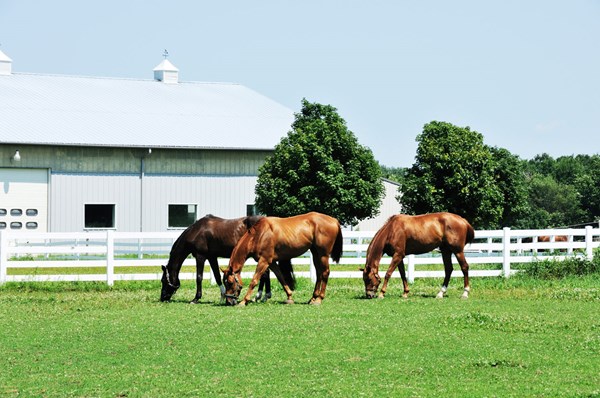 Credit: Thinkstock The researchers concluded that the fecal bacterial community of yearlings is rich in various kinds of microbes and that the relative amounts of these microbes can change rapidly in response to changes in diet.
Credit: Thinkstock The researchers concluded that the fecal bacterial community of yearlings is rich in various kinds of microbes and that the relative amounts of these microbes can change rapidly in response to changes in diet.Although the equine digestive tract is exquisitely sensitive, it adapts surprisingly well to sudden changes in diet, said researchers from New Zealand.
“It is widely accepted that the microorganisms that inhabit the equine hindgut are sensitive to changes in the gastrointestinal environment. Those microorganisms can change based on the diet being offered and how quickly that food passes through the intestinal tract. It is also known that abrupt changes in diet, especially those involving starches and water-soluble carbohydrates, can lead to hindgut acidosis, colic, and laminitis,” said Bryan M. Waldridge, D.V.M., head veterinarian for Kentucky Equine Research.
Gaining a better understanding of what bacterial populations exist in the equine hindgut when fed certain diets and how those populations are altered following changes in their diets is important for maximizing equine gastrointestinal health and avoiding colic and laminitis.
As such, Fernandes and coworkers* fed six yearling Thoroughbred fillies an ensiled conserved forage-grain diet and another six yearlings pasture only for three weeks. At that point, fecal samples were collected and the population of microorganisms was analyzed. Immediately after, the yearlings fed grain and ensiled forage were abruptly transitioned to pasture for three weeks, during which fecal microbial populations were analyzed every four days.
The study authors found:
- There was a diverse population of microbes in the hindguts of both groups of horses;
- Despite being diverse, the microbe populations were different between the two groups of yearlings, especially among four types of bacteria (Bacteroidaceae, Paraprevotellaceae, Clostridiales, and Lachnospiraceae); and
- Within a mere four days of abruptly switching yearlings to pasture from the forage-based diet, their fecal bacterial populations became similar to the yearlings that remained on pasture consistently throughout the study.
The researchers concluded that the fecal bacterial community of yearlings is rich in various kinds of microbes and that the relative amounts of these microbes can change rapidly in response to changes in diet.
They also noted, “It is possible that daily changes in pasture composition affect the faecal microbiota of horses and this requires further investigation.”
*Fernandes, K.A., S. Kittelmann, C.W. Rogers, et al. 2014. Faecal microbiota of forage-fed horses in New Zealand and the population dynamics of microbial communities following dietary change. PLoS One 9(11):e112846.
Visit equinews.com/newsletters to subscribe to The Weekly Feed, KER’s award-winning equine nutrition newsletter.


